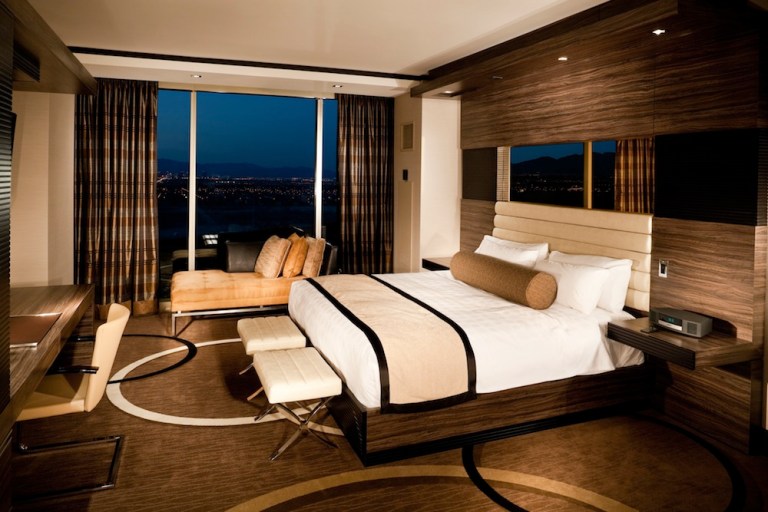How Siri And Alexa Could Be The New Face — Or Voice — Of Hospitality

Millions of American consumers have welcomed Amazon’s Alexa and other voice assistants into their homes. These assistants help with basic tasks and chores — making grocery lists, notifying users when things run out and ordering more; letting them know when the dishes or laundry are done; and enabling them to control features such as lighting, music and heat just by speaking it.
If regular life is that convenient, shouldn’t vacation be even more so? After all, people work hard; when they take a well-earned break, they shouldn’t have to lift a finger — and certainly not more fingers than they had to lift at home.
Like so much of the retail industry, hospitality is all about customer experience. A happy customer is an asset and a source of repeat revenue, either because they will stay at the hotel chain again themselves or because they will recommend it to family and friends. An unhappy customer, meanwhile, is a liability, and an unpredictable one at that. Unhappy customers complain to family and friends, or even worse, take to social media and business review sites to air their complaints for the world to see.
Placing a voice-activated assistant in hotel rooms could help ensure that customers don’t become the latter. If they have requests at odd hours of the night, there’s a system in place to address those and ensure their comfort. If they are too warm or too cold, no more fiddling with baffling industrial thermostats until they give up, frustrated and resigned to a poor night’s sleep.
Of course, many also have privacy concerns related to voice-activated technology, even at home — let alone in a shared space, where others use the device before and after them, and where someone (the hotel) could potentially have access to data or moments that the guest would prefer to keep private.
Despite the fears of some, several hoteliers have decided to give it a try over the past year, including some of the bigger name brands. Here’s a cross-section of lodging options for the tech-savvy traveler (or simply the hands-full parents).
Pacifica Hotels — Santa Barbara & Los Angeles
The Irvine-based 34-property Pacifica Hotels chain serves guests in California, Hawaii and Florida. Two of those properties now have voice-activated “butlers” on staff, with Amazon Echo Dot speakers positioned in rooms at Santa Barbara’s Wayfarer and the larger, classic Echo in those at the Marina del Rey Hotel.
The butler can be asked to bring extra towels, play music, or check out when guests are ready to leave. It can also answer questions about hotel services and local attractions or restaurants to check out. However, it does not yet support room service.
Aloft Hotel — Boston Seaport & Santa Clara, California
Last December, 10 rooms at the Aloft Hotel in Boston’s Seaport got smart. That’s in addition to Aloft Hotel in Santa Barbara, which got the technology in September 2016.
The room uses components from Apple’s HomeKit to make Siri do what Amazon Alexa’s been doing in living rooms across America for years now: adjust the heat, find out the time or weather, stream internet content, and tell users about local attractions. It’s all powered by an iPad that runs a customer Aloft app that integrates with all of these smart-capable features.
The rooms come with a $75 premium, so for now, it’s probably early adopters only, but hey — the lights come on by themselves when you walk in, and one day, you may be able to order food and drinks as you arrive, to be delivered by a robot minutes later. Now that’s room service.
Marriott Hotels International, Wynn Resorts, and Best Western
Marriott Hotels — the world’s largest hotel chain — actually owns the aforementioned Aloft Hotels, which are currently the only locations where the technology has been rolled out, but the chain will likely roll it out more broadly once the wrinkles are ironed out.
It trialed both Amazon’s Alexa and Apple’s Siri in its rooms, to help guests turn on lights, close drapes, control temperature and television — the usual stuff. The chain said it was not even going to bother testing the Google Assistant or Microsoft Cortana (ouch).
Wynn Resorts took the opposite path, choosing Alexa to power 4,700 rooms in its Las Vegas hotel. Over the summer, Best Western Hotels & Resorts was testing the Amazon Dot as a tool for both guests and employees, telling Fortune that voice commerce and Amazon’s Alexa are the future.
BYOD
Some hotels are opting to BYOD — bring your own device. Rather than rely on technology someone else has created, they want a bespoke solution tailored to their business.
See: Angie Hospitality, which makes a 24-hour interactive guest room assistant, WiFi and room control solution. Also, Mode:Green and Volara have teamed up to power voice-based guest engagement at hotels using custom automation and software solutions.
Clearly, these few examples are just the beginning of what could be a much larger trend. But that trend also still has the potential to go nowhere at all — it all depends on whether consumers like it as much as business owners think they will. Would you stay in a voice-powered hotel room?